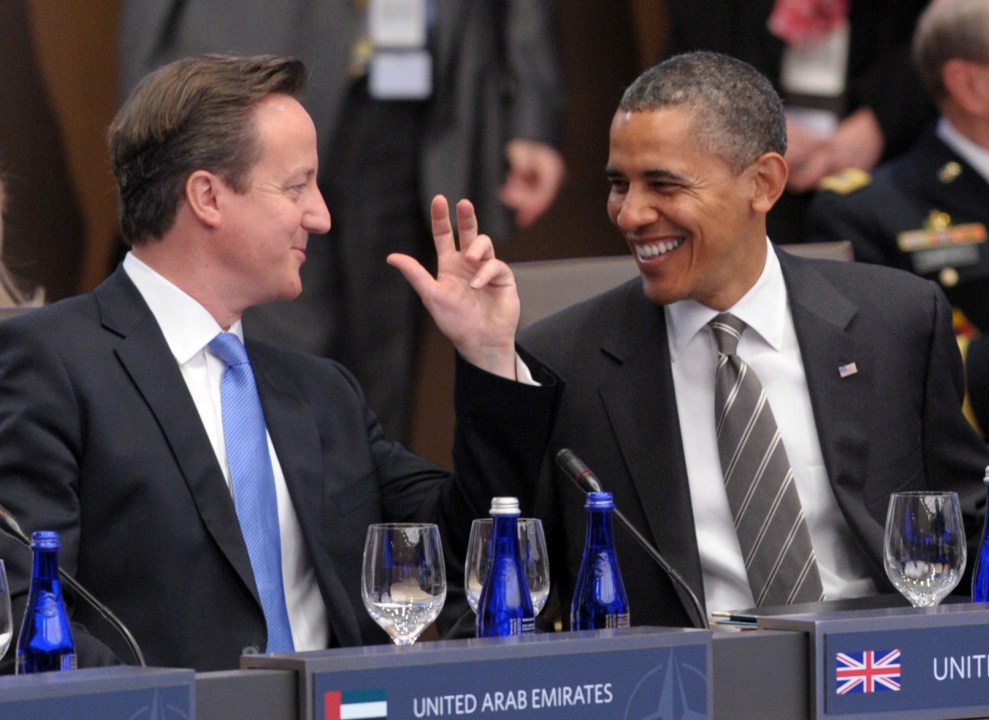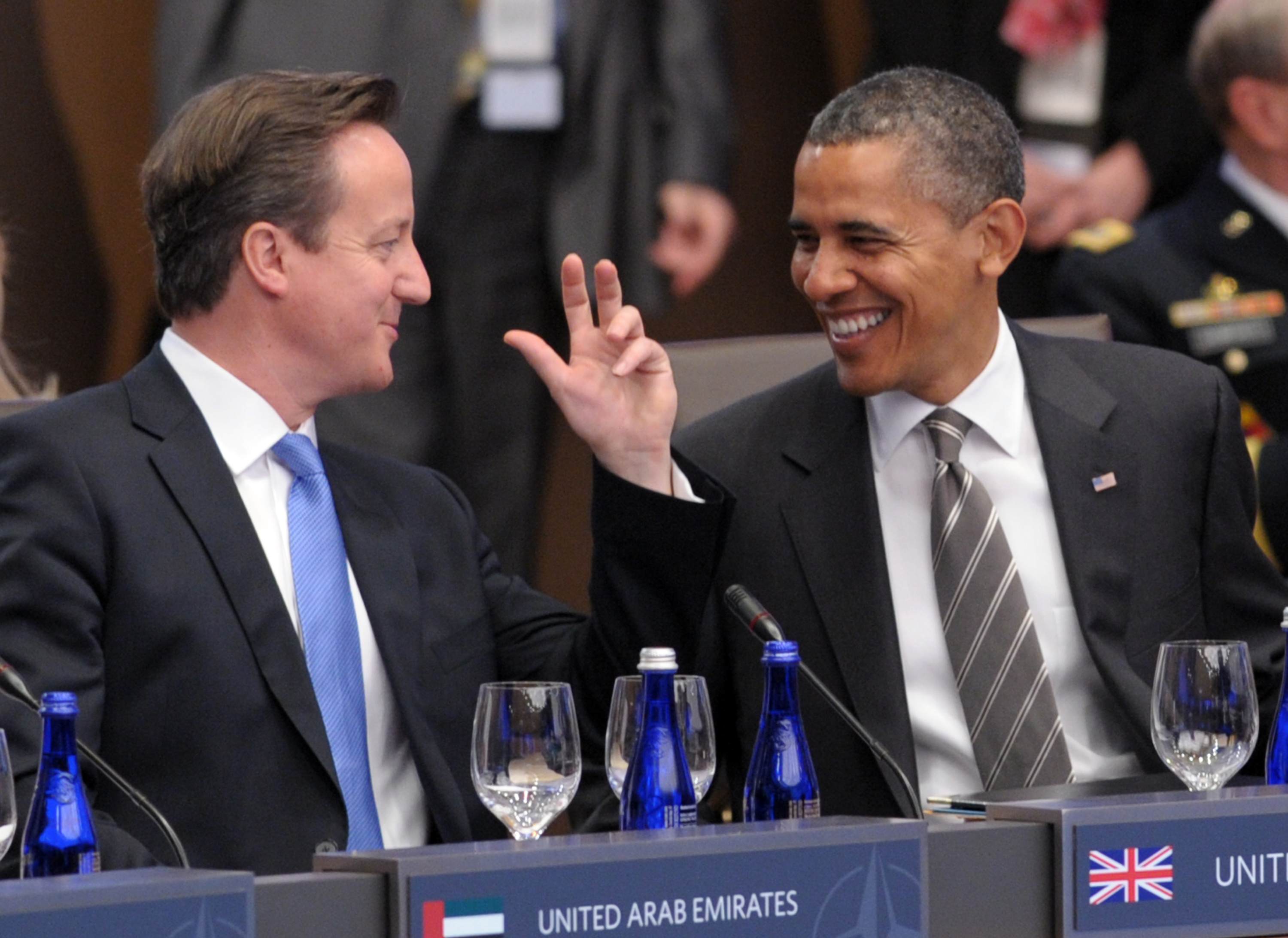Good grief. Are we supposed to be surprised that senior officials at the US State Department take the view that Britain should, all things considered, remain a member of the European Union? Of course not. Are, however, we supposed to be shocked by Foggy Bottom’s impertinence in saying so? Apparently so.
Of course, if the Obama administration were to say that it’s in America’s interests for Britain to leave the EU then I hazard many of those pretending – for surely it must only be a pretence? – to be outraged by this damned interference in our own affairs would instead welcome the Americans’ intervention in the debate and use it as yet more evidence the EU is a busted flush and that the future lies in some grand Churchillian alliance of the English-speaking peoples.
Well, fine. But must we be so touchy about these things? Have we really reached the stage at which we considerate illegitimate or, worse still, inappropriate for our closest allies to declare their interests? It seems so, at least as far as eurosceptics are concerned. Especially when American preferences are deemed inconvenient.
Washington’s view is hardly going to determine the outcome of Britain’s deliberations on this front but the hysterical reaction to Philip Gordon’s comments is entirely disproportionate to the imaginary offense caused.
Take, for instance, inveterate Obama-hater Niall Gardiner’s laughably tendentious response. This espresso-cup sized tempest is yet another reminder that it would have been better for Britain if Mitt Romney had won last year’s presidential election. Why so? Because:
Had Mitt Romney won, there would have been a very different approach towards the EU, with a far greater emphasis upon advancing ties with nation states in Europe as opposed to currying favour with Brussels. Romney’s approach was distinctly Eurosceptic, with frequent warnings against America ending up like Europe, with its big government, high tax approach.
This is nonsense. Romney, in as much as he had a coherent foreign policy agenda at all (itself a debatable proposition), may have warned against creeping euro-socialism but that’s not the same thing at all as endorsing British withdrawal from the EU. The American interest in Britain’s continuing membership would have remained the same regardless of whoever won the Presidential election. We may hazard this for the very simple reason that all recent American Presidents, Republican and Democrat alike, have favoured British involvement in Europe.
And they have done so for precisely the reasons Philip Gordon suggests. Namely:
“Britain has been such a special partner of the United States – that shares our values, shares our interests, has significant resources to bring to the table. More than most others, its voice within the European Union is essential and critical to the United States.”
“There are a lot of inevitably technical and detailed issues that have to be sorted out for every member of the European Union as it moves forward, but as a broad and general theme, we value a strong UK voice in a strong European Union.”
As far as the Americans are concerned, then, British membership of the EU acts as a useful counterweight to, well, the French. It is the same reason the Dutch, the Poles, the Swedes, the Czechs and others wish Britain to remain a full member of the EU. Remove Britain and the EU becomes a little less liberal on many matters that matter dearly to these countries (and to Britain!) just as much, indeed even more than, they do to the United States.
Indeed, Mr Gordon’s views are not in fact very far removed from what I take to be the British government’s own position. You may think that position hopelessly misguided or even irresponsibly naive but it is hardly impertinent for the Americans to say that, broadly speaking, they agree with the British government’s own views and that this, conveniently, suits the interests of both countries.
According to Mr Gardiner, however:
[I]f anything, the ignorant and relentless hectoring from Washington will only encourage the resolve of those who are fighting to restore national sovereignty for Britain in Europe. Frankly, British policy on Europe is none of President Obama’s business. The present US administration is not only flat wrong on the EU, but it is also displaying a breathtaking arrogance that will win it few friends across the Atlantic in the second term of the Obama presidency.
Well, it’s a point of view.
That said, he is on slightly stronger ground when he writes:
Unfortunately for Washington, that single European voice [that the Americans say they wish to hear from] is often deeply anti-American in nature, and all too often working against the United States on the world stage. But this is a point that is lost on the US State Department, which traditionally backs European integration with all the zeal of a Herman Van Rompuy or Jose Manuel Barroso. The last thing America needs is a common EU foreign and defense policy that undercuts the NATO alliance and the Special Relationship while making it far harder for the US to build partnerships in Europe with individual allies on areas of common interest.
Of course, if the EU really is “often deeply anti-American in nature” then it seems entirely reasonable for the US to think its interests lie in Britain’s continuing membership since that must – or should be thought likely to – mitigate the EU’s supposedly inveterately anti-American nature.
It is true that the Americans are not keen on EU foreign and defence policies that “undercut” NATO. Which is why Washington has generally looked askance at the development of any truly independent european defence capability. That is, the Americans wish the EU to speak as one when and in areas that suit US interests but not when or in areas that do not. Shocking! Granted, that means the American attitude to the EU is in some ways incoherent but, hell, you can’t get everything you want.
Even so, it is hardly a surprise that Washington would prefer Britain to remain a member of the EU or that the Americans think this would be in their (and Britain’s) interest.
But if chums cannot speak frankly to chums then what is the point of being chums? It is hardly impertinent for the Americans to declare their interest just as it is hardly impertinent for Britain to make its views known to other countries on matters that also concern the United Kingdom and there’s something depressingly childish about pretending to be outraged by any of this.








Comments